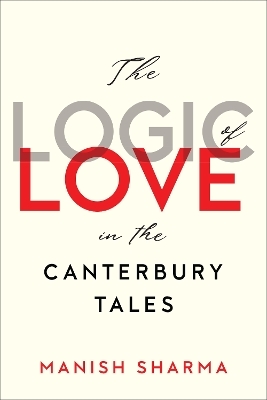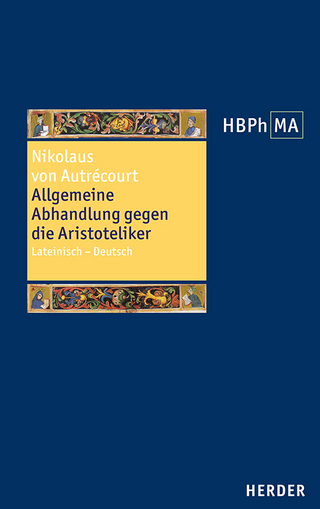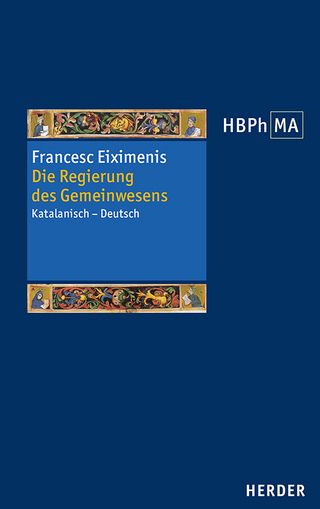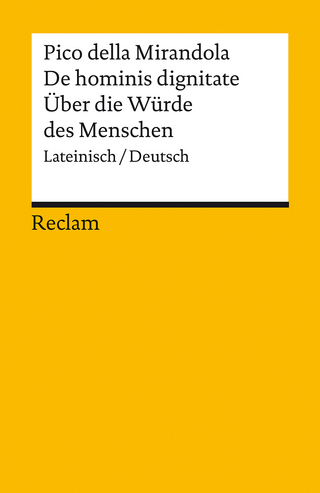
The Logic of Love in the Canterbury Tales
Seiten
2022
University of Toronto Press (Verlag)
978-1-4875-0903-3 (ISBN)
University of Toronto Press (Verlag)
978-1-4875-0903-3 (ISBN)
The Logic of Love in the Canterbury Tales proposes a new way to understand the correlation between love and philosophy in Chaucer’s famous collection of stories.
The Logic of Love in The Canterbury Tales argues that Geoffrey Chaucer’s magnum opus draws inventively on the resources of late medieval logic to conceive of love as an "insoluble." Philosophers of the fourteenth century expended great effort to solve insolubilia, like the notorious Liar paradox, in order to decide upon their truth or falsity. For Chaucer, however, and in keeping with Christ’s admonition from the Sermon on the Mount, the lover does not judge – does not decide on – the beloved.
Through a series of detailed and rigorously "non-judgmental" readings, Manish Sharma provides new insight into each of the prologues and tales and intervenes into scholarly debates about their collective import. In so doing, The Logic of Love in The Canterbury Tales deploys Chaucer’s understanding of charity to consider the limitations of modern critical approaches to The Canterbury Tales, including deconstruction, psychoanalysis, and gender theory. In the course of the analysis, Sharma shows not only how love and medieval philosophy together inform Chaucerian composition, but also how Chaucer could serve as a resource for contemporary theoretical reflections on love and ethics.
The Logic of Love in The Canterbury Tales argues that Geoffrey Chaucer’s magnum opus draws inventively on the resources of late medieval logic to conceive of love as an "insoluble." Philosophers of the fourteenth century expended great effort to solve insolubilia, like the notorious Liar paradox, in order to decide upon their truth or falsity. For Chaucer, however, and in keeping with Christ’s admonition from the Sermon on the Mount, the lover does not judge – does not decide on – the beloved.
Through a series of detailed and rigorously "non-judgmental" readings, Manish Sharma provides new insight into each of the prologues and tales and intervenes into scholarly debates about their collective import. In so doing, The Logic of Love in The Canterbury Tales deploys Chaucer’s understanding of charity to consider the limitations of modern critical approaches to The Canterbury Tales, including deconstruction, psychoanalysis, and gender theory. In the course of the analysis, Sharma shows not only how love and medieval philosophy together inform Chaucerian composition, but also how Chaucer could serve as a resource for contemporary theoretical reflections on love and ethics.
Manish Sharma is associate professor of Medieval English Literature at Concordia University.
Introduction: Flesh and Word in the General Prologue
1. Judge Not: The Nun’s Priest on Logic, the Franklin on Love
2. Lest Ye Be Judged: Fragment 1 and the Law of Unintended Consequences
3. Vengeance and Forgiveness in Fragments 2 and 3
4. Reading Griselda Charitably in Fragment 4
5. Governance and Rebellion in Fragment 6
6. Loving the Prioress in Fragment 7
7. Loving Chaucer: Judgment and Charity in Fragments 8-10
Conclusion
| Erscheinungsdatum | 30.07.2022 |
|---|---|
| Verlagsort | Toronto |
| Sprache | englisch |
| Maße | 157 x 231 mm |
| Gewicht | 720 g |
| Themenwelt | Geisteswissenschaften ► Philosophie ► Philosophie des Mittelalters |
| Geisteswissenschaften ► Sprach- / Literaturwissenschaft ► Anglistik / Amerikanistik | |
| Geisteswissenschaften ► Sprach- / Literaturwissenschaft ► Literaturwissenschaft | |
| ISBN-10 | 1-4875-0903-0 / 1487509030 |
| ISBN-13 | 978-1-4875-0903-3 / 9781487509033 |
| Zustand | Neuware |
| Haben Sie eine Frage zum Produkt? |
Mehr entdecken
aus dem Bereich
aus dem Bereich
Lateinisch - Deutsch
Buch | Hardcover (2024)
Herder (Verlag)
70,00 €


